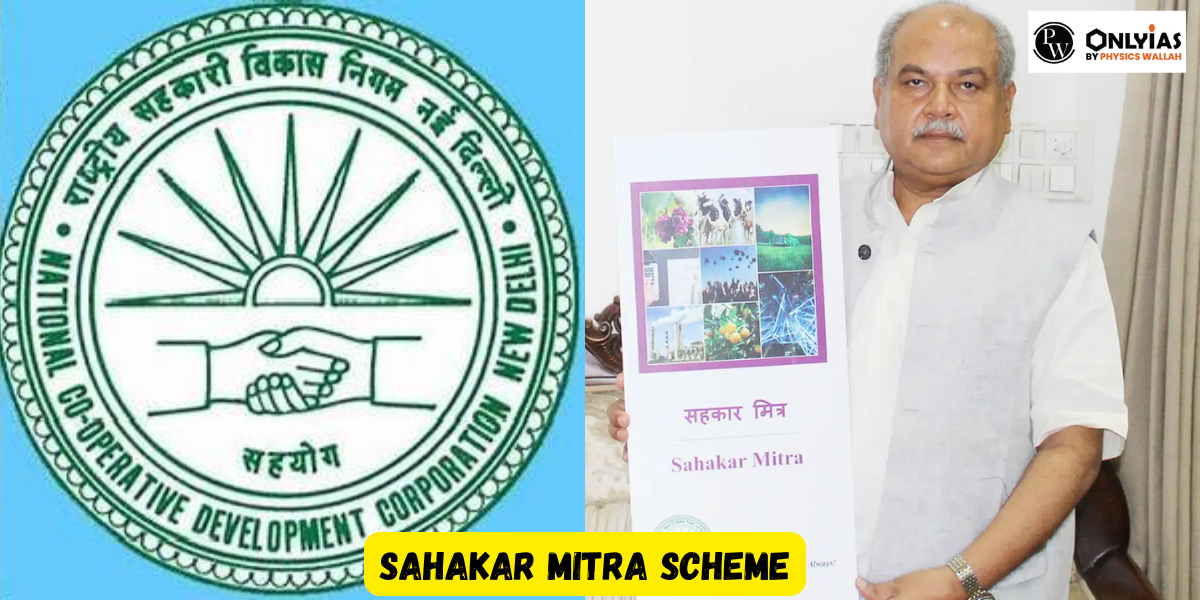The Ministry of Agriculture and Farmers’ Welfare has launched the Sahakar Mitra Scheme, also known as the Scheme on Internship Programme.

Sahakar Mitra Scheme: The Ministry of Agriculture and Farmers’ Welfare has launched the Sahakar Mitra Scheme, also known as the Scheme on Internship Programme (SIP). Administered by the National Cooperative Development Corporation (NCDC), this initiative aims to provide a short-term learning experience, not exceeding four months, to young professionals. The internship program, with a focus on the cooperative sector, is designed to enhance the skills and knowledge of participants, fostering innovation and self-reliance. It is a paid internship for a duration of four months.
The Sahakar Mitra Scheme, also known as the Scheme on Internship Programme (SIP), is an initiative where the National Cooperative Development Corporation (NCDC) offers short-term opportunities, not exceeding four months, for young professionals to acquire learning experience. This program facilitates the application of skills and knowledge in an organizational context, contributing to the professional development of participants.
The primary goal of the Sahakar Mitra Scheme is to provide professional graduates with the chance to gain practical experience in the functioning of NCDC and other relevant cooperative aspects.
Qualified individuals for the Sahakar Mitra Summer Internship Scheme include:
As defined by the International Labour Organisation (ILO), a cooperative is an autonomous association of individuals who voluntarily unite to fulfill their common economic, social, and cultural needs and aspirations through a jointly owned and democratically controlled enterprise. Examples of cooperatives include Farmer Producer Organizations (FPOs).
An FPO, constituted by a collective of farm producers, is a registered entity with producers as shareholders. It engages in business activities related to farm produce and operates for the collective benefit of its member producers.
| Also Read | |
| One Nation One Ration Card Scheme (ONORCS) | PM SVANidhi Scheme |
| Mission Karmayogi | PM AASHA Scheme (Pradhan Mantri Annadata Aay SanraksHan Abhiyan) |
| Must Read | |
| NCERT Notes For UPSC | UPSC Daily Current Affairs |
| UPSC Blogs | UPSC Daily Editorials |
| Daily Current Affairs Quiz | Daily Main Answer Writing |
| UPSC Mains Previous Year Papers | UPSC Test Series 2024 |
The SAHAKAR MITRA Scheme on Internship Programme (SIP) is a initiative where the NCDC will offer brief-term opportunities, not exceeding 4 months, for young professionals to acquire learning experience by applying their skills and knowledge in an organizational setting, facilitating their professional development.
The Summer Internship Program (SIP), known as the Sahakar Mitra Scheme, has been initiated by the Ministry of Agriculture and Farmers' Welfare.
The guiding principle of this initiative is encapsulated in the 5Fs: Farm to fiber to factory to fashion to foreign.
NCDC plays a crucial role in the strategic planning, promotion, coordination, and financing of cooperative development initiatives at the national level. The corporation extends both financial and technical assistance to cooperative institutions, particularly those representing farmers and other economically vulnerable sections engaged in agriculture and related rural economic activities.
The Indian government has officially disclosed the locations for the establishment of 7 PM Mega Integrated Textile Regions and Apparel (PM MITRA) Parks, dedicated to the textile industry. These parks are slated to be developed in the states of Tamil Nadu, Telangana, Gujarat, Karnataka, Madhya Pradesh, Uttar Pradesh, and Maharashtra.

<div class="new-fform">
</div>